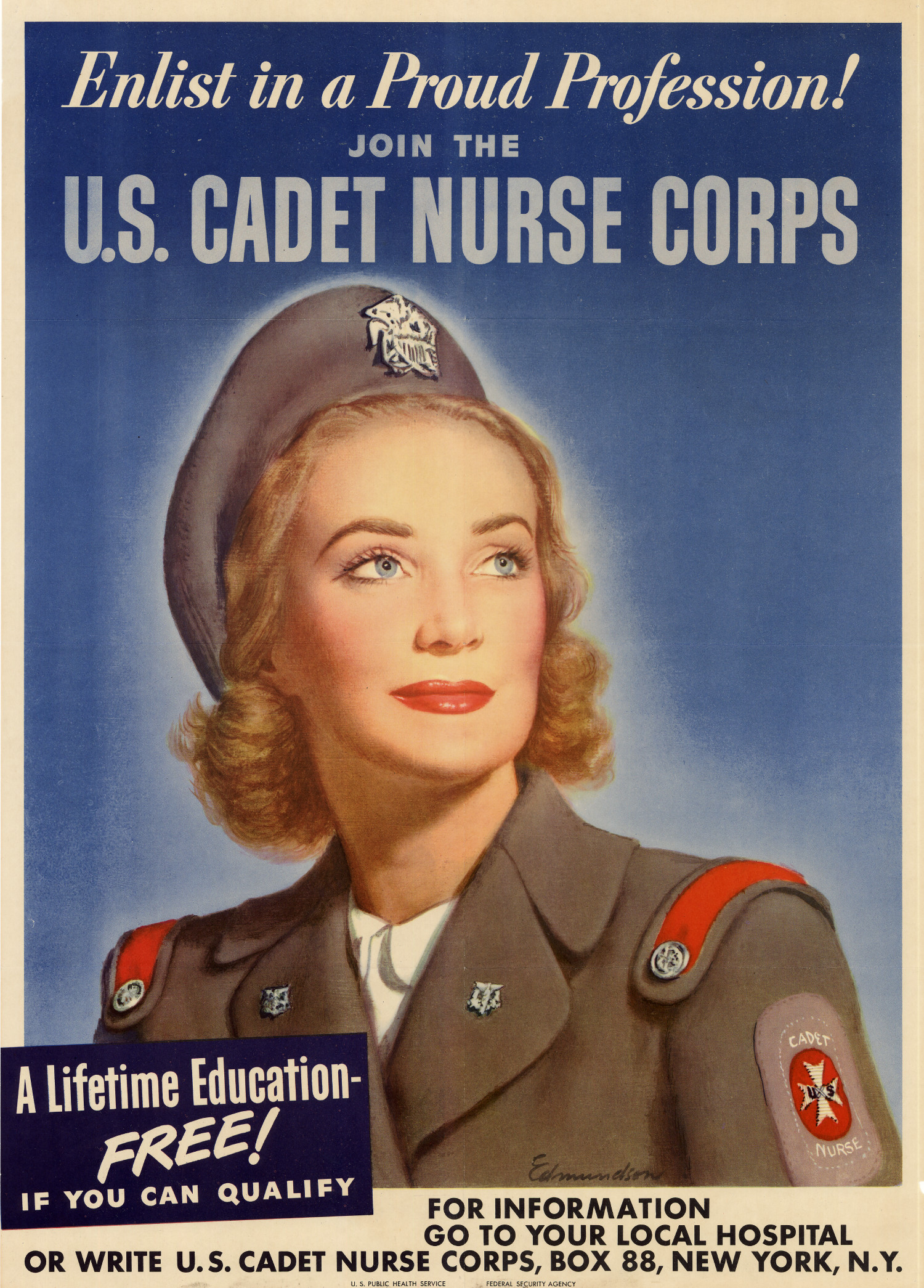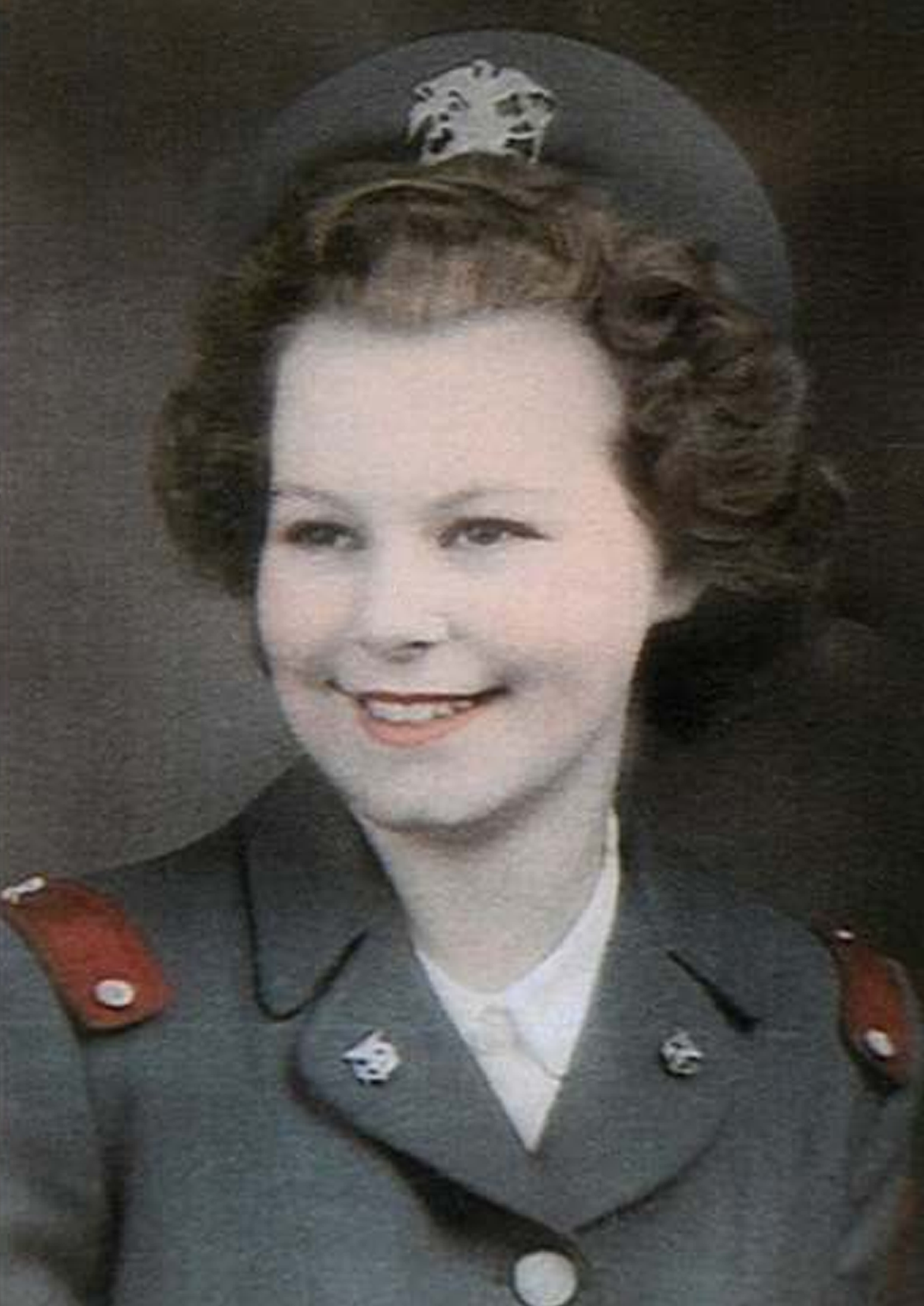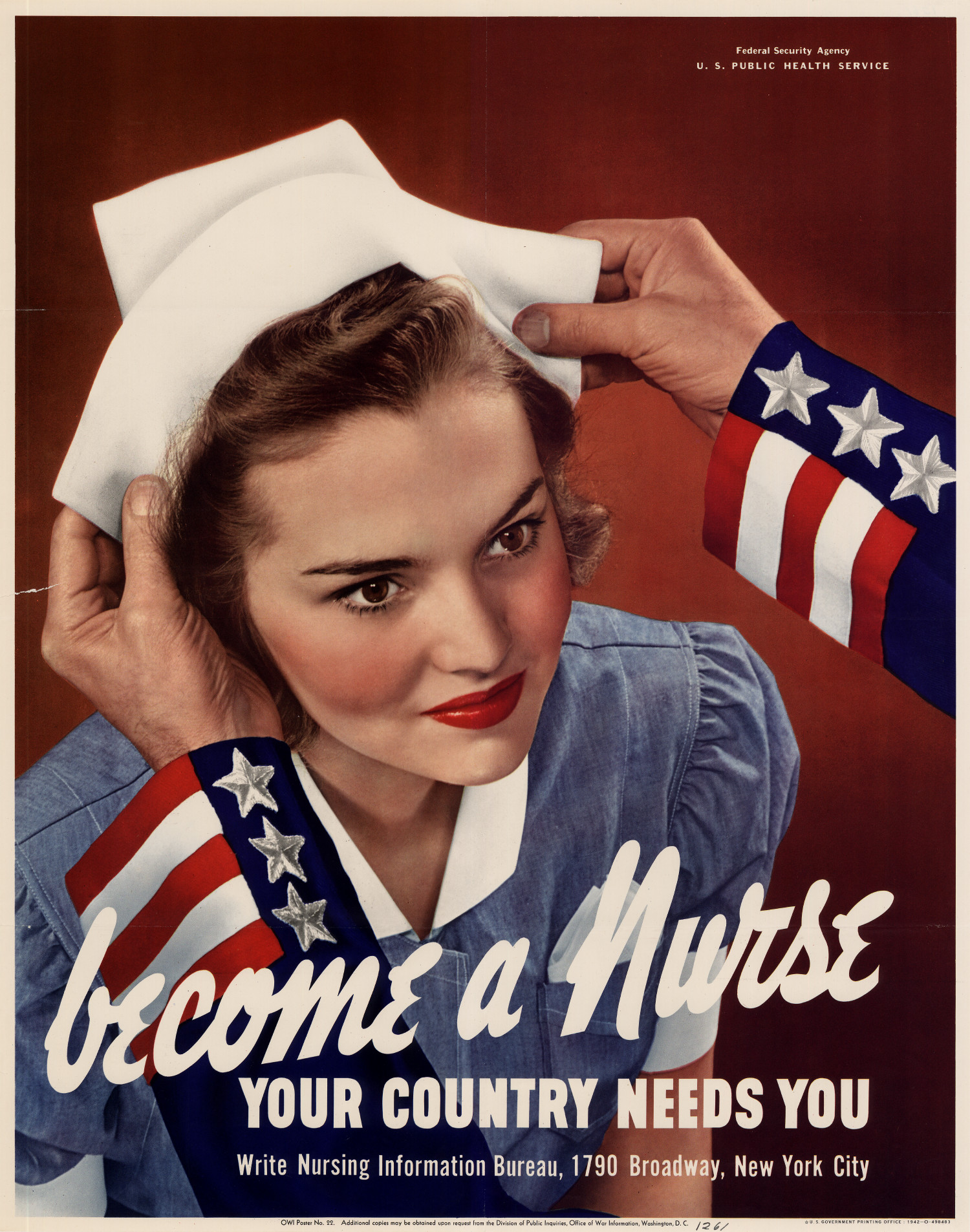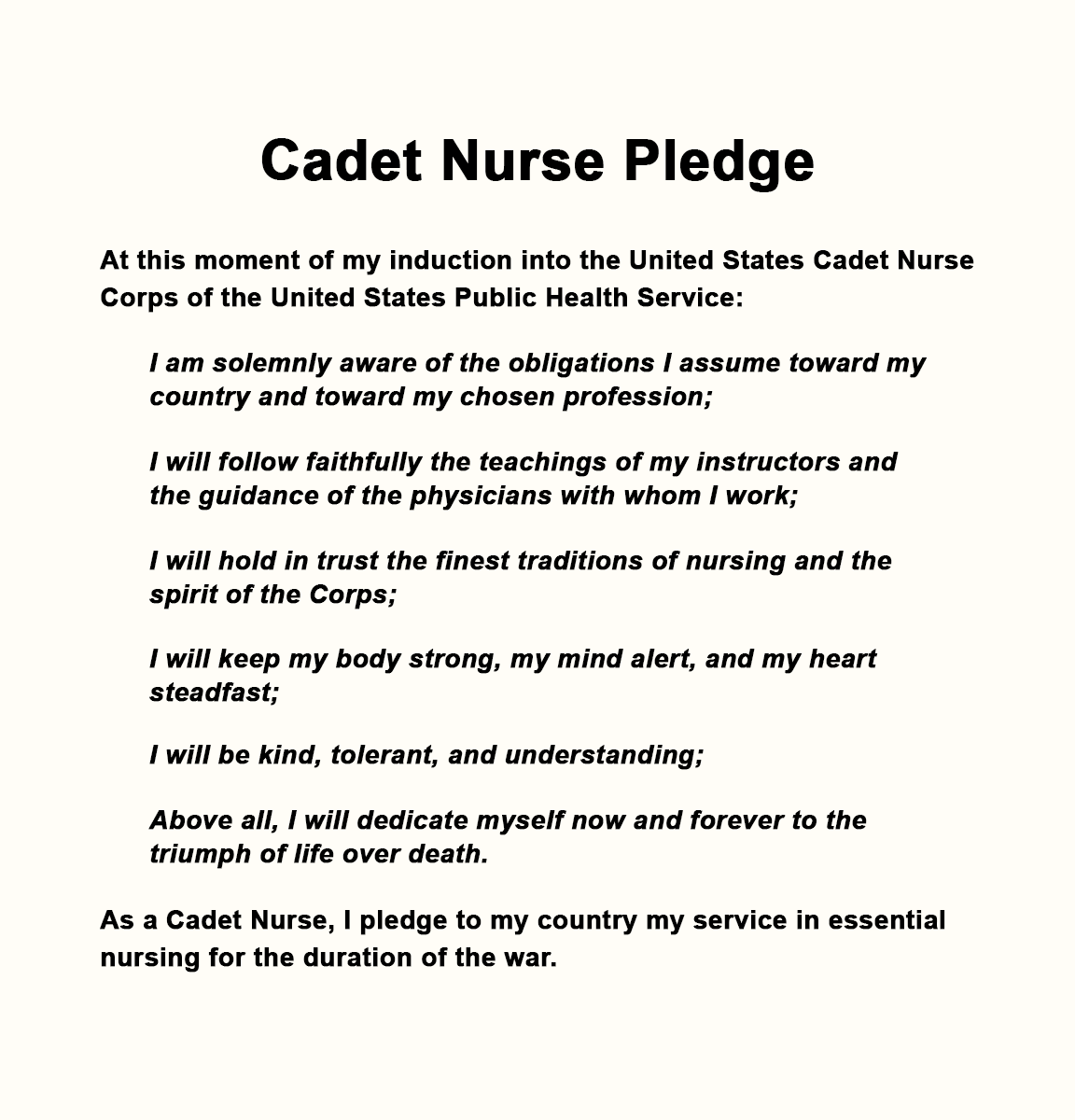AARP Eye Center
By Natalie Missakian

In 1943 the recruitment posters were everywhere: “Become a nurse – your country needs you!” “Enlist in a proud profession!”
At 17, Elizabeth Yeznach was one of 180,000 young women across the country who answered the call.
Now 96, the Ledyard resident is one of the few surviving members of the U.S. Cadet Nurse Corps, a government program created to address a severe shortage of nurses during World War II. She has also been a leader in a movement to gain veteran status for the nurses, who have been credited with saving the U.S. health system from collapse during the war.
Yeznach was a senior at Norwich Free Academy when she and a friend traveled to Hartford to apply to nursing school at St. Francis Hospital. When Congress approved the cadet program a few months later, the young women each got letters from the hospital asking if they wanted to enlist.

“And of course, we did. We went in the day after Labor Day,” she recalls. “We worked six-and-a-half days a week for 12 hour days, and if you had the afternoon off, you could leave campus, but you had to be in by 10 o’clock.”
President Roosevelt signed the law creating the nurse corps on June 15, 1943 and by 1945, the cadets were providing 80% of the care in U.S. hospitals.
More than 124,000 nurses graduated from the program, which provided free training, room and board, uniforms and a small stipend - $15 a month to start, Yeznach recalls.
They were issued military-style uniforms which they were required to wear whenever they ventured off campus.
“We were a large school and we used to have soldiers come down and we’d have to go out and practice how to march,” Yeznach remembers. “In other hospitals in bigger cities they would have cadet nurses march in parades, so we had to be prepared.”

As a girl growing up in Taftville, Yeznach dreamed of being a teacher. Many of the other girls in her high school aspired to serve the country as nurses, listing it as their “highest ambition” in the blurbs under their yearbook photos, she recalls.
“My highest ambition was to go to Paris,” Yeznach says. “And I’ve been five times.”
Nonetheless, she says she is proud to have served and, like many cadets, went on to have a successful career in nursing. After graduation, she took a job at Norwich Hospital and then switched to private duty nursing while raising four children.
While in her 50s, she decided to chase her dream of becoming a teacher, and returned to school for her bachelor’s degree in education, which led to a second career as a nursing instructor.
Then, in the 1990s, she met Shirley Harrow, a nurse from Quincy, Mass., and became an activist.
Harrow was interviewing Yeznach and other nurses for the Harvard Nurses’ Health Study and the two women got to talking about how the federal government had never formally recognized the nurses as veterans.
“I was not a cadet nurse, but it just didn’t seem right that they weren’t recognized,” said Harrow, now 88. “These women saved the health care system of the United States during a War and then continued to be nurses for 20 to 30 years afterwards.”
The women decided they needed to change that, and soon joined forces to mail out hundreds of letters to nurse cadets around the country, trying to spark a movement.
In 2009, they helped mobilize a group of former cadet nurses to travel to Washington, D.C., to lobby for a US Cadet Nurse Recognition Act, a bill that would grant them veteran status. The recognition act would have given the cadets honorary veteran status and honorable discharges, making them eligible for medals and burial benefits but not pensions, health care or other veterans' benefits.
Yeznach fell and broke her wrist during the trip and couldn’t testify in person, but she gave her speech to another former cadet to read. She described working long and stressful hours, caring for as many as 50 patients at once, including those who had been injured in the 1944 Hartford Barnum and Bailey Circus fire tragedy.
“If we are not veterans, can you tell us what we are?” she asked the lawmakers.
The bill was unsuccessful, as were many that came before and after, including a measure introduced by Sen. Elizabeth Warren, D-Mass. last year.
With the youngest cadet nurses now in their early ‘90s, supporters like Harrow worry that the last living cadets will die before getting the veteran status they deserve.
“I don’t lose any sleep over that, but I don’t lose hope either,” says Yeznach.
She continues to tell the cadet nurses’ story whenever she has an opportunity, and hopes their efforts will at least help cement their legacy with future generations.
“Maybe in 2350 somebody will be reading about us in their history books,” she says.
























































